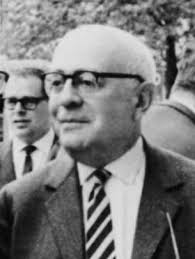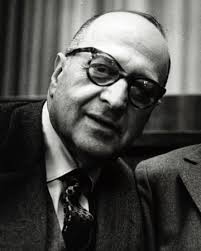In this post, notes of Unit 1 (what is Politics Theorizing the Political) from DSC – 1 (Understanding Political Theory) are given which is helpful for the students doing graduation this year.
Introduction of Political Theory
What is Political Theory?
Political theory is the study of ideas that explain how politics works and how societies function. It looks at things like power, government, justice, rights, freedom, and equality. The goal is to understand how people and groups organize and interact in a political system. It also asks big questions about human nature and what values should guide government.
| Related | you can also read |
|---|---|
| Approaches to Political theory Normative Historical and Empirical | Indian National Movement: Dynamics within Social Movements |
Importance of Political Theory
Political theory is important for a few reasons:
- Understanding Politics: It provides the tools to understand how political systems work and how people behave in them.
- Guiding Actions: It helps decide what should be done in politics by offering moral advice.
- Encouraging Change: Political theory promotes thinking critically about political systems, which can lead to improvements.
- Foundations for Political Ideas: It supports beliefs like democracy and socialism that shape political movements and policies.
Difference between Political Theory and Political Philosophy
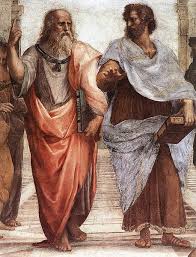
Political theory and political philosophy are related but focus on different things:
– Political Theory is more practical. It looks at real-world political systems and suggests solutions to problems.
– Political Philosophy focuses on deeper questions about politics, like “What is justice?” or “What makes a good society?” It deals with moral issues beyond just governance.
Understanding Politics
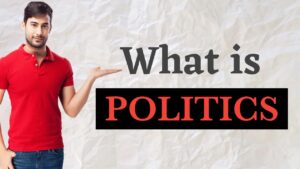
What is Politics?
Politics is how groups of people make decisions together. This usually happens through governments and systems that manage power. It involves talking, debating, and fighting over power and resources in a society. Politics affects how decisions are made, who makes them, and what happens as a result. It includes the actions of people, political parties, governments, and organizations in shaping rules and public life.
Key Features of Politics
- Power and Authority: Politics is mainly about the fight for power, which means being able to influence or control others, and authority, which is the right way to use power.
- Conflict and Cooperation: Politics involves handling disagreements and promoting teamwork among different groups for shared goals.
- Government and Rules: Politics is connected to the government, which creates and enforces laws and rules for political life.
- Public vs. Private: Politics mostly deals with public matters, but it can also affect personal life, especially concerning rights and freedoms.
- Changing and Growing: Politics changes over time with shifts in society, culture, technology, and global events.
Politics as an Activity
What Politics Involves ?
Politics includes actions that try to influence or control how a society or government works. This includes:
– Voting and Elections: Taking part in elections and political parties is important in democracies.
– Discussion and Debate: Talking about and debating laws and policies is a key part of politics.
– Lobbying and Advocacy: Groups and individuals try to persuade lawmakers to support their interests.
– Protests and Activism: Political movements and protests are ways people challenge current power and policies.
– Global Relations: Politics also includes how countries relate to each other, including treaties and resolving conflicts.
Overall, politics is about influencing how decisions are made that affect public life and society as a whole.
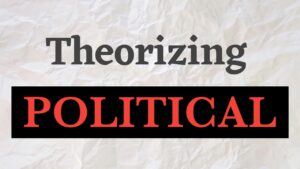
Theorizing the Political
Theoretical Approaches to Politics
Normative Approach to Politics
– This approach looks at what should be instead of what is. It deals with questions about fairness, rights, and the best way to organize society. It tries to find out what values and morals should guide politics.
– It asks questions like: “What makes a fair society?” or “What rights do people need?”
– Example: John Rawls’ idea of justice focuses on fairness and equality in politics.
Empirical Approach to politics
– This approach studies real facts and behaviors in politics. It uses data and evidence to understand political events.
– The goal is to describe and predict political behavior using methods like surveys and statistics.
– Example: Researching how people vote or what public opinion is falls under this approach.
Historical Approach to politics
– This approach looks at how political ideas and systems have changed over time. It connects current political thoughts to past events and thinkers.
– It helps us understand where political ideas come from and how they developed.
– Example: Studying the history of democracy from ancient Greece to today fits into this approach.
Key Theorists and Their Contributions
Plato and Aristotle
– Plato: In “The Republic,” he described a perfect government led by wise rulers, believing that a just society has harmony among its classes.
– Aristotle: In “Politics,” he focused on practical government and believed that the state should work for the common good, supporting a balanced government that considers both rich and poor.
Machiavelli and Hobbes
– Niccolò Machiavelli: In “The Prince,” he looked at how rulers gain and keep power, often suggesting tough actions. He is known for putting practical needs above morals.
– Thomas Hobbes: In “Leviathan,” Hobbes said that without a strong leader, life would be chaotic and dangerous. He believed people should give up some freedom for safety and order.
Marx and Weber
– Karl Marx: He believed that economic systems shape society and politics. In “The Communist Manifesto,” he criticized capitalism and pushed for a society where everyone shares resources.
– Max Weber: He studied authority and government systems, identifying three types of legitimate power: traditional, charismatic, and rational-legal. He also discussed how cultural values affect economics and politics.
These thinkers have greatly influenced political ideas and continue to shape discussions about power, justice, and society today.
Central Debates in Political Theory
Power and Authority
– Power is the ability to influence or control others. It can come in many forms, like economic, military, or political power.
– Authority is the accepted use of power. People recognize and agree to the authority of those in charge. Max Weber identified three types of authority: traditional, charismatic, and rational-legal.
Key Questions:
– Is power always used to force people, or can it also be used to help and cooperate?
– What is the link between authority and legitimacy? Can authority exist without people’s approval?
– How does power show up in today’s political systems, and how do groups like companies and international organizations use power?
State and Sovereignty
– State: A state is a political group that has the right to use force in a certain area. It makes laws, protects its people, and offers services like security and infrastructure.
– Sovereignty means the state has the highest authority to rule itself without outside interference. It involves controlling its own affairs and being recognized by other states.
Key Questions:
– Has a state’s sovereignty weakened in today’s globalized world due to the power of multinational companies and international issues like climate change?
– How does sovereignty relate to democracy? Can a state be independent while following international rules and human rights?
– How do ideas like “shared sovereignty” (for example, in the European Union) challenge traditional views of state sovereignty?
Justice and Equality
– Justice means fairness in sharing resources, rights, and opportunities. It can be about fair distribution of goods or fair decision-making processes.
– Equality can mean everyone has the same chances to succeed or that everyone ends up with similar results.
Key Questions:
– Should justice focus more on equal chances or equal results? How can societies balance rewarding talent with fair wealth distribution?
– How do we deal with different views of justice, like minimal government involvement versus extensive wealth redistribution?
– Can true equality be reached in a capitalist society, or do the system’s rules create inequalities?
Liberty and Rights
– Liberty means being free to act as one wishes without too much control. There are two types: negative liberty (freedom from outside interference) and positive liberty (the ability to reach one’s potential).
– Rights are things people are entitled to just because they are human. They can be natural rights (like life and freedom), civil rights (like free speech), or social rights (like access to healthcare).
Key Questions:
– How do we balance personal freedom with government authority? When is it okay for the government to limit freedom for the greater good?
– How should political theory handle conflicts between rights, like free speech versus protection from hate speech?
– Are social and economic rights as important as civil and political rights, or are they less important?
These discussions are central to political theory and help us understand power, governance, and the relationship between people and the state.
Contemporary Perspectives on politics
Feminist Perspectives on Politics
Feminist political theory criticizes old political ideas for focusing too much on men and leaving out women’s experiences. It aims to understand and fix the unfairness that women and other minority genders face in politics, society, and the economy.
Main Ideas:
– Patriarchy: Feminists critique patriarchy, a system where men have power and privilege, often harming women. They study how patriarchy is present in laws and political systems.
– Intersectionality: This idea, introduced by Kimberlé Crenshaw, shows how different identities (like gender, race, and class) combine to create unique experiences of unfair treatment and privilege.
– Gender and Power: Feminist thinkers examine how gender affects power relations in both private life and politics.
Main Questions:
– How can political theory better include women’s and marginalized genders’ experiences?
– What should the government do to help fix gender inequality through policies like affirmative action or reproductive rights?
– How do different identities affect people’s experiences of unfairness and their access to power?
Key Thinkers:
– Simone de Beauvoir: Her book “The Second Sex” challenged views of women as less important and argued that gender roles are shaped by society.
– Judith Butler: In “Gender Trouble,” Butler questioned the idea of fixed gender identities, suggesting that gender is something people perform.
Postmodern Perspectives on Politics
Postmodern political theory doubts big ideas, universal truths, and fixed identities. It criticizes the belief in reason and progress, suggesting that power influences knowledge, and politics often involves battling dominant ideas.
Main Ideas:
– Power/Knowledge: Following Michel Foucault, postmodern theorists say that knowledge is connected to power. What is seen as “truth” is decided by those in control, and politics is about which ideas are accepted.
– Deconstruction: Inspired by Jacques Derrida, postmodern thinkers break down concepts like “the state” or “justice” to uncover hidden assumptions and power relations.
– Relativism: Postmodernism argues against a single truth, favoring many different viewpoints.
Main Questions:
– Can political theory make sense without universal truths? Is postmodernism too flexible to provide real solutions?
– How can we understand power without relying on traditional systems like the government or class?
Key Thinkers:
– Michel Foucault: His works like “Discipline and Punish” looked at how power works through institutions and social norms.
– Jean-François Lyotard: In “The Postmodern Condition,” he rejected big ideas like Marxism, saying the world is too complicated for such broad theories.
Critical Theory
Critical theory, from the Frankfurt School, aims to challenge societal power and oppression. It mixes Marxist ideas with critiques of culture and media, arguing that capitalist societies control people not just through economic means but also through culture and ideology.
Main Ideas:
– Hegemony: Following Antonio Gramsci, critical theorists study how the ruling class keeps power not just by force but by shaping culture to seem like “common sense.”
– Ideology: Critical theorists like Herbert Marcuse and Theodor Adorno analyze how capitalist ideas influence culture, keeping people passive and supporting the status quo.
– Emancipation: Critical theory focuses on freeing people from oppressive structures that limit their potential.
Main Questions:
– How can critical theory critique society while also providing alternatives for change?
– Can critical theory stay relevant in today’s globalized world, where new powers like surveillance and data control exist?
Key Thinkers:
– Theodor Adorno and Max Horkheimer: In “Dialectic of Enlightenment,” they critiqued mass media as a tool of control that stops people from thinking critically.
– Jürgen Habermas: He developed the idea of communicative action, which stresses the need for rational communication to achieve democracy and challenge systems of control.
These modern views challenge traditional political theory, expanding how we understand power, identity, and society. They focus on voices that are often left out, question dominant ideas, and aim for social justice and freedom.
Political Community
What is a Political Community?
A political community is a group of people who share political rules, values, or goals, usually in a specific area governed by laws and organizations. It means that members have a common identity based on shared responsibilities and interests for the well-being of their community or society.
Main Features:
– Shared Governance: People in a political community usually take part in decision-making, often through voting or other political activities.
– Common Values: Members often share important beliefs like fairness, freedom, and equality, which help them work together.
– Territorial Boundaries: Political communities are often linked to a certain area, like a country or a local region.
Main Questions:
– What decides the borders of a political community—land, culture, or loyalty to the government?
– Can political communities exist in a world where connections go beyond national borders?
Political Obligation and Legitimacy
– Political Obligation is the duty that people have to follow the laws and support the government of their political community. It asks why people should listen to their government and what makes their loyalty right.
Ideas about Political Obligation:
– Social Contract Theory: Thinkers like John Locke and others say that people agree to be governed in return for safety and protection.
– Consent Theory: People agree, either openly or silently, to the government’s authority.
– Utilitarianism: This view suggests people should follow the laws if it leads to the greatest happiness for everyone.
Legitimacy means the rightful use of power by a government. A government is seen as legitimate when its power is accepted by its people because it is fair or just.
Main Questions:
– Are people required to follow unfair laws, and when is it okay to protest against the government?
– How do modern governments keep their legitimacy, especially when people may not agree with their authority?
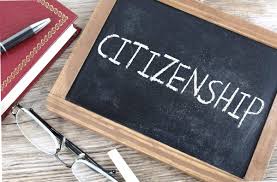
Citizenship and Identity
– Citizenship is being a member of a political community, which includes certain rights and responsibilities. It involves participating in the community and feeling a sense of belonging. There are different aspects of citizenship:
– Legal Citizenship: Official recognition as a member of a state, giving specific rights (like voting) and responsibilities (like following laws).
– Civic Citizenship: Taking part in community and political activities, like voting and volunteering.
– Cultural Citizenship: Feeling a sense of belonging to a cultural or political group, often based on shared language and traditions.
– Identity in politics is how people and groups see themselves in relation to their community. It includes national, ethnic, and religious identities, which influence how people interact with the government.
Main Questions:
– Multiculturalism and Citizenship: How can communities include different cultures while keeping a strong national identity?
– Global Citizenship: Can people feel responsible for the whole world, not just their own country?
– Dual or Multiple Identities: Can people have more than one political identity, and how does this affect their loyalties and actions?
The idea of a political community raises important questions about belonging, governance, and the duties people have to their community and to each other. Political theory looks at how these ideas change with modern issues like globalization, migration, and evolving identities.
Relating Theory to Practice
Using Political Theory in Real Life
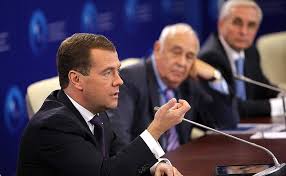
Political theory is not just a set of ideas; it helps shape real political systems, rules, and social movements. By applying these theories to real situations, we can study, critique, and improve how politics works.
How Political Theory Relates to Real Life:
- Democracy: Theories about democracy, like those by John Locke and Jean-Jacques Rousseau, help create democratic systems. They affect discussions about voting rights, political participation, and government authority.
- Fairness and Equality: Theories about justice, such as John Rawls’ idea of “justice as fairness,” influence laws on wealth distribution and social services. This theory impacts debates about taxes, minimum wage, and policies to reduce inequality.
- Power and Control: Theories from thinkers like Max Weber and Michel Foucault help us understand how institutions control people. These ideas are important for examining political structures like authoritarian governments and bureaucracies.
- Rights and Freedom: Theories about individual rights, especially from John Stuart Mill and Isaiah Berlin, are used in legal settings to protect free speech and privacy. Courts often refer to these theories when interpreting laws.
- Global Relations: Theories about state power and global cooperation shape how international organizations like the United Nations and trade agreements function. They influence foreign policy and conflict resolution.
Case Studies and Examples
- Social Contract Theory and the U.S. Constitution
– Theory: Thinkers like John Locke and Jean-Jacques Rousseau suggest that government authority comes from a contract where people agree to be governed for their protection.
– real life example: The U.S. Constitution shows this idea by creating a government based on the people’s will and protecting individual rights, like in the Bill of Rights.
- Rawls’ Justice Theory and Welfare Policies
– Theory: John Rawls argues that justice should benefit the least advantaged and allow inequalities only if they help those in need.
– real life example: Welfare programs like Social Security and progressive taxes aim to reduce inequality and support vulnerable people, reflecting Rawls’ ideas.
- Feminist Theory and Gender Equality Laws
– Theory: Feminist thinkers like Simone de Beauvoir argue for gender equality.
– real life example: Feminist ideas have led to laws on equal pay, reproductive rights, and anti-discrimination, and movements like MeToo promote these principles.
- Critical Theory and Media Influence
– Theory: The Frankfurt School’s critical theory claims that mass media shapes people’s thoughts and supports capitalist control.
– real life example: Critiques of media monopolies and corporate influence have sparked debates about media regulation and the role of companies in democracy.
- Machiavelli’s Realpolitik and Modern Leaders
– Theory: Niccolò Machiavelli’s realpolitik focuses on practical power use, sometimes ignoring morality for political success.
– real life example: Many leaders, especially in authoritarian regimes, use Machiavellian tactics to keep control, like Vladimir Putin in Russia and Xi Jinping in China.
- Marxist Theory and Revolutions
– Theory: Karl Marx argues that history is shaped by class struggle between the rich and the working class, leading to inequality.
– real life example: Marxist ideas have inspired revolutions like the Russian Revolution and continue to influence movements for economic justice today.
These examples show how political theory directly affects real political actions and policies. Understanding the link between theory and practice helps us engage with current political issues and strive for better governance.
For more details click here:- Understanding Political Theory
What is political theorizing?
Political theorizing is the process of analyzing, interpreting, and constructing theories about political phenomena, drawing from a range of disciplines to understand and critique existing structures.
What are the three types of theorizing?
Political theorizing is divided into three main types: normative, descriptive, and analytical. Normative theorists focus on values, ideals, and norms, while descriptive theorists study political phenomena in practice. Analytical theorists focus on clarifying concepts, assumptions, and arguments within political discourse. These three types of theorizing are not mutually exclusive, and many theorists may draw on elements from each approach depending on the questions they seek to address.
Why do we need political theory?
Political theory serves several important functions in society: understanding political systems, critical analysis, guiding political action, predicting and shaping political change, and promoting civic engagement. It helps us understand the principles, values, and ideologies that underpin different political systems, question assumptions, challenge power dynamics, and uncover inequalities. It also provides normative frameworks and ethical principles that can guide political action and decision-making.

